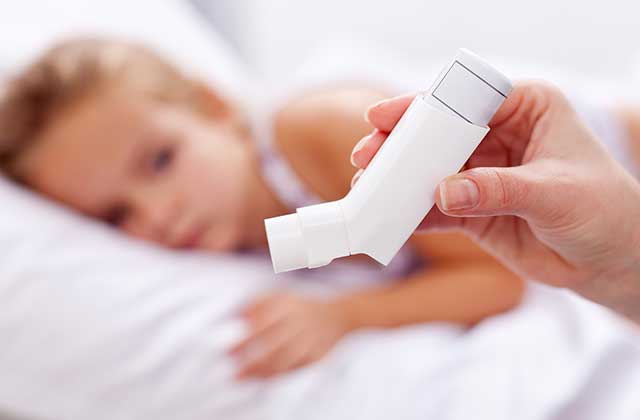Seeing your kid suffer from asthma is difficult as a parent. For most children, asthma symptoms can be managed up to the point that they rarely get attacks. But knowing about treatments and triggers, and creating a lifestyle plan for your young one takes diligent research, patience, perseverance, and a good pediatrician.
Right now, around 9.5 % of Canada’s population has asthma. Still, according to data, approximately 16% of children aging 4 to 11 suffer from the disease. Childhood asthma is the same as what grown-ups get, but the symptoms can be different in kids. Your child’s developing lungs and airways can quickly flare up when he or she contracts a common cold or suffers an allergy. If untreated, asthma attacks can get in the way of your child’s daily tasks like going to school or playing. This lung disease does not have any cure yet, but despite this, it can be successfully managed with the help of a licensed medical doctor.
How can a child contract asthma?
Some conditions favor the development of asthma among kids. Your child might be susceptible to asthma because of the following reasons:
- Asthma and allergies run in the family
- Prolonged exposure to cigarette or tobacco smoke
- Low birth weight and diagnosis of respiratory distress syndrome (RDS) during birth
- Frequent exposure to allergens from infancy
- Recurring respiratory infections since birth
- Obesity
Signs to watch out for
If you know your child has a higher risk-factor to contract asthma, you can be extra vigilant about watching out for the following symptoms:
- Prolonged coughing bouts that happen especially during or after physical activities, night time, during cold weather, or while crying intensely
- Frequent breaks to catch his or her breath during intense physical play or exercise
- Aversion to sports or physical activities
- Rapid breathing
- Tightness or pain in the chest
- Difficulty in sleeping due to recurring coughs or shortness of breath
- Hearing whistling or wheezing sounds when the child is breathing
- Frequent shortness of breath
- Tightened neck and chest muscles
- Weakness or tiredness
- Chest retractions
- Difficulty in eating
If your young one is suffering from a severe asthma attack, you have to seek emergency medical attention immediately. Administer any medication for asthma and bring the child to the hospital at once if he or she is experiencing the following:
- Unable to speak properly because of shortness of breathing
- A belly that sinks under the ribs while gasping for air
- Hyperventilation and a quick pulse
- Cold sweats accompanied by difficulty in breathing and severe coughing
- Chest and sides that pull every time the child gets air
- Severe chest pain when trying to get air
Managing the disease
Do not be discouraged when dealing with childhood asthma. The disease can be manageable and your child can live a normal life and overcome this as he or she grows. Here are the things you can try to deal with the respiratory illness that affects your toddler:
- Know the triggers and avoid them. Prevention is better than cure. Identifying anything that triggers your child’s asthma flare-ups. The most prevalent ones are allergens like pet hair, mold, pollen, and dust. Other circumstances that can set off an attack are the common cold or temperature changes. Your child may have specific triggers, so find out what those are. This is where you put your investigative skills to the test. Keep a journal where you log your asthma plan and list down things to avoid. Knowing these things and helping your child to avoid allergens and triggers will go a long way.
- Let your child take his or her medicines. If your child is struggling with asthma, chances are, you have had several trips to the doctor. Your pediatrician may have given you a list of medications to take. There daily maintenance drugs for long term treatment and there are also those that your child needs to take only when experiencing an attack. Most asthma relievers come with the use of inhalers or nebulizers to immediately get the medicine to the airways and quickly stop the flare-up. Keep a log of the prescription medication and dosage in your notebook. Having your doctor’s number will also come in handy for questions and emergencies.
- Have an emergency plan. You will never know when an emergency will strike if you are raising a kid with asthma. Keep at the contact numbers of at least two hospitals that you can call in case of emergencies. If you are leaving your child to the care of others, an asthma kit can be useful. Put your child’s medicine, notes on what to do in case of an emergency, medicine dosages, information on your contact number and number of the doctor and hospitals.
With the COVID-19 still hanging around and the fall season coming in, protecting your child against asthma triggers becomes a crucial task for any parent. If you have questions but cannot have a face-to-face consultation with a pediatrician, try contacting an online doctor Toronto. Do not hesitate to seek help. Talk to an online physician today.

